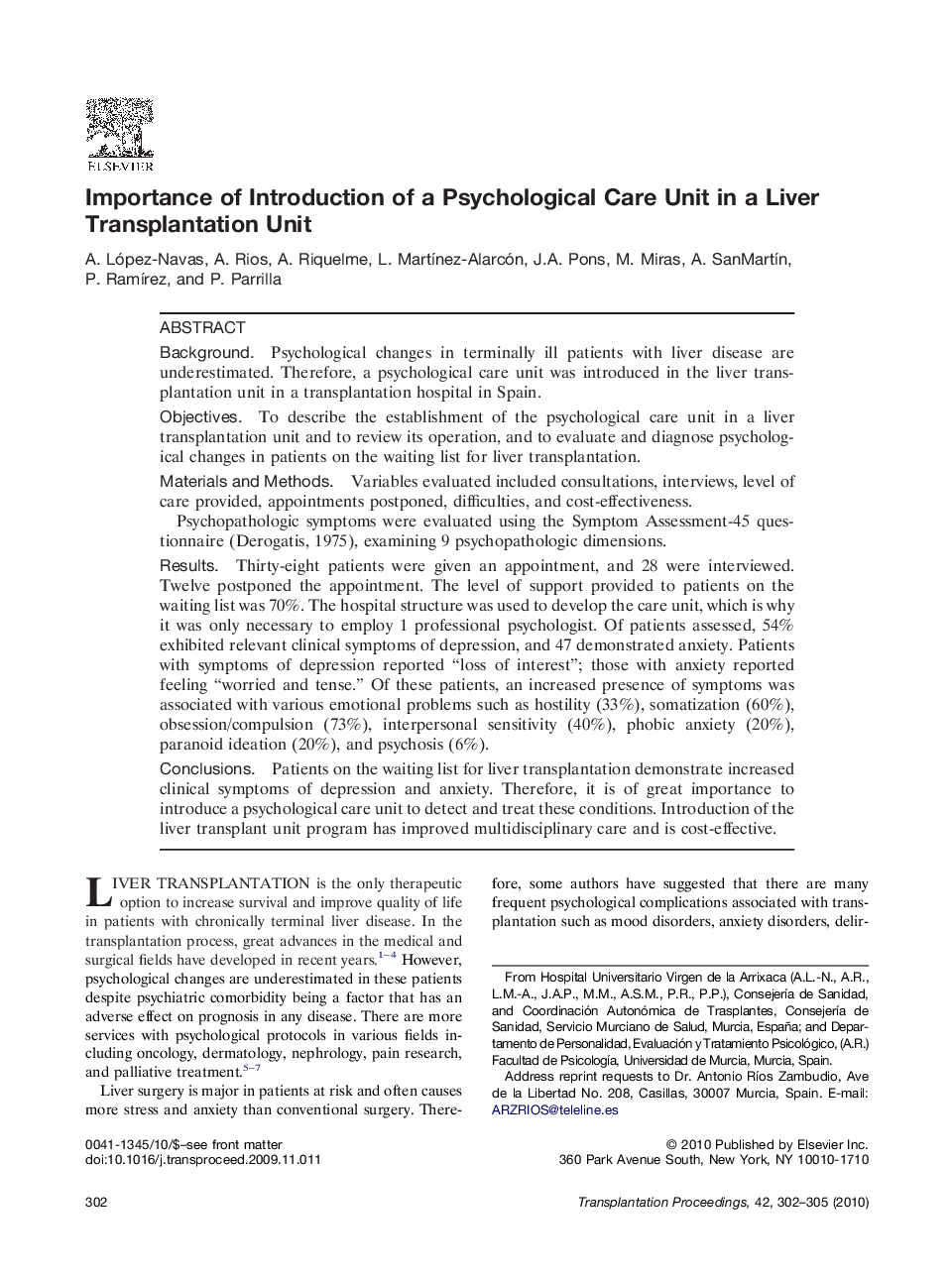| Article ID | Journal | Published Year | Pages | File Type |
|---|---|---|---|---|
| 4260876 | Transplantation Proceedings | 2010 | 4 Pages |
BackgroundPsychological changes in terminally ill patients with liver disease are underestimated. Therefore, a psychological care unit was introduced in the liver transplantation unit in a transplantation hospital in Spain.ObjectivesTo describe the establishment of the psychological care unit in a liver transplantation unit and to review its operation, and to evaluate and diagnose psychological changes in patients on the waiting list for liver transplantation.Materials and MethodsVariables evaluated included consultations, interviews, level of care provided, appointments postponed, difficulties, and cost-effectiveness.Psychopathologic symptoms were evaluated using the Symptom Assessment-45 questionnaire (Derogatis, 1975), examining 9 psychopathologic dimensions.ResultsThirty-eight patients were given an appointment, and 28 were interviewed. Twelve postponed the appointment. The level of support provided to patients on the waiting list was 70%. The hospital structure was used to develop the care unit, which is why it was only necessary to employ 1 professional psychologist. Of patients assessed, 54% exhibited relevant clinical symptoms of depression, and 47 demonstrated anxiety. Patients with symptoms of depression reported “loss of interest”; those with anxiety reported feeling “worried and tense.” Of these patients, an increased presence of symptoms was associated with various emotional problems such as hostility (33%), somatization (60%), obsession/compulsion (73%), interpersonal sensitivity (40%), phobic anxiety (20%), paranoid ideation (20%), and psychosis (6%).ConclusionsPatients on the waiting list for liver transplantation demonstrate increased clinical symptoms of depression and anxiety. Therefore, it is of great importance to introduce a psychological care unit to detect and treat these conditions. Introduction of the liver transplant unit program has improved multidisciplinary care and is cost-effective.
